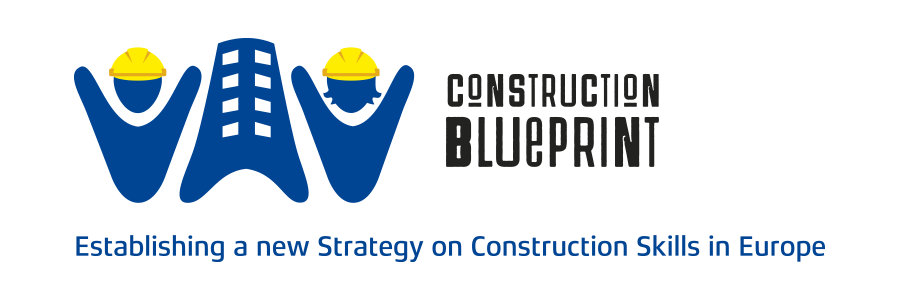 QUESTION: What is your professional/educational background?
QUESTION: What is your professional/educational background?
ANSWER: After I began a career in banking in 1994, I had to interrupt it when my son was born.
With a long-time appetite for entrepreneurship, I encouraged and supported the creation of my husband’s plumbing business, then joined him in 2000 on a part-time basis to take care of the administrative aspects.
Employed until 2010, I took over the management of the company in 2010 in order to better treat the management risk (mandates, signatures, etc.).
Even though I mainly assumed the administrative part, I was trained and regularly worked on the sites.
QUESTION: How long have you been working in the building sector (or dealing with the topic of women in construction) and what are your main professional tasks?
ANSWER: My company joined the Fédération Française du Bâtiment (French Building Federation) in 2005, thanks to a recommendation from the MEDEF (French interprofessional federation) concerning a problem with an employee.
I obtained my first mandate in 2009 as an employment tribunal councillor to defend the interests of companies. I also became very interested in the technical aspects of the heating and ventilation engineering (HVAC) industry.
I joined the Women’s group of the Alpes-Maritimes’ construction federation out of friendship.
Since 2020, I have been chairing the FFB’s Women Business Leaders group, which is mainly involved in employers’ trade unionism. In fact, it is not intended to deal specifically with the subject of women in business, insofar as we do not make a distinction between men and women.
However, following a note from the French CESE (Economic, social and environmental Council) on women and ecological transition, we asked ourselves about the situation of apprenticeship and women in other European countries, particularly in Germany, which led us to explore different avenues.
QUESTION: How do you view the current situation of women in the construction sector? What do you think is the reason for this?
ANSWER: The mindset that a woman can run a company is not there yet. Mostly, women are not involved in the works and in technology, but this should increase tenfold in the future, with more and more girls entering the engineering field.
However, women are highly respected on the construction sites. More and more women are driving trucks, which may be surprising at first, but is quickly accepted.
Solidarity works in the construction industry and is reinforced with women on site.
QUESTION: To what extent is this already a change from the past?
ANSWER: Mutual aid and solidarity are heightened significantly. Men behave well towards women, and better towards each other as well.
A woman will look for an alternative rather than carrying or pushing her body. We note a different approach to health and safety at work.
On the other hand, as a woman, you have to prove your abilities more than a man. You must be very good. A man is more easily forgiven for his mediocrity than a woman.
Prejudices are still strong, especially with older people. The new generation is much more open minded.
I would say that, even if I don’t support it and that sometimes it bothers me, the extremist claims (on parity, feminism, LGBT) help to move the lines, which is good.
QUESTION: The construction industry is still a male domain. What measures can be taken to significantly increase the proportion of women in the near future?
ANSWER: There is no magic solution. Parents need to be educated and the national education system needs to change. We have to get away from clichés, open up the field of possibilities and allow girls to enter professions considered to be for men.
One example is the young Kelly Cruz, a social network influencer, extremely feminine, who gave up a career as a hairdresser to join her father’s company as a tiler.
Regarding the national education, it must be emphasised in schools that not everyone is cut out for higher education. They can learn a trade rather than go through a general pathway.
QUESTION: What does this mean for companies (employer branding) and their recruitment strategies?
ANSWER: Companies can recruit if they receive applications, which remains quite rare.
I know a Human resources director who has decided to prioritise the recruitment of women, but not all companies can do this.
Generally, jobs that are too gendered are problematic. Priority should be given to gender diversity (not parity).
Companies also face regulatory constraints in France (e.g.: provision of separate toilets for men and women), which makes it difficult to welcome women into companies. It could be an obstacle for some of them.
QUESTION: What does this mean for companies (employer branding) and their recruitment strategies?
ANSWER: Teachers in vocational training centres have no real part to play. The challenge is to convince women to enter the field.
Often, when women have chosen this training, they are strong-willed, motivated and work well. They give their best.
The role of the teachers is to be supportive.
QUESTION: What potential do digitalisation and green technologies offer in this context?
ANSWER: Digital technology offers more than just a chance for the integration of women in the sector. Things are moving with the development of new professions that will be more accessible to women (BIM, robotisation, industrialisation, home automation, etc.), as well as in consulting engineers or supervising offices.
As far as green technologies are concerned, it seems less true insofar as everyone has become aware of them.
QUESTION: What advantages do you see in a higher number of women in construction professions?
ANSWER: As mentioned earlier, in general, there are problems with jobs that are too gendered. There is a complementarity between women and men. It is important to favour gender diversity.
QUESTION: What advice would you give to young women considering a career in construction?
ANSWER: Don’t give in, you can do it. Give yourself the means and believe in yourself. You have the ability to do it.
We’re doing really well here!




